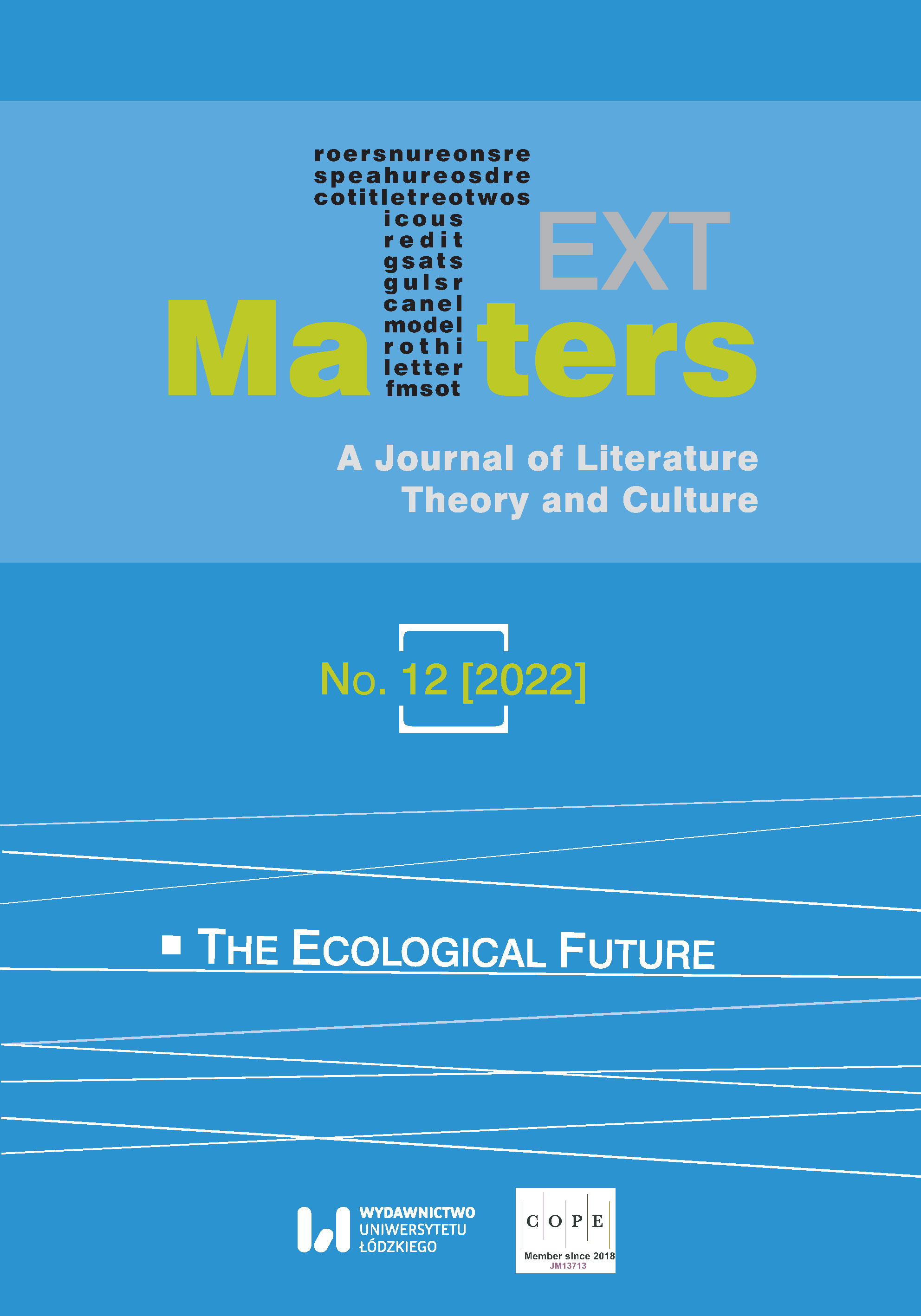The Butterfly Effect: Creating and Recreating the Story of Madame Butterfly, on Paper and on Stage
DOI:
https://doi.org/10.18778/2083-2931.12.26Keywords:
Orientalism, post-colonialism, Madame Butterfly, Miss Saigon, theatre, musicalAbstract
The consequences of the partially coerced opening of Japan to the Western world in the second half of the 19th century went far beyond economic and political goals and considerations. The previously secluded land almost instantly became a source of artistic inspiration and endless fascination. Japonisme, the term by which the latest craze become known in France, was no passing fad. For many decades, Western artists, most of whom had never set foot in Japan, derived profound inspiration from all facets of the mysterious culture which unfolded in the period. Thus, with scant information and a lack of accurate records being available, common gossip and unfounded rumor filled in the blanks of official reports and naval tales, connecting the dots between the real and the imagined.
In this paper, I succinctly examine the story of Madame Butterfly, cutting across time, genre and borders in the works of John Luther Long, David Belasco, Giacomo Puccini and Claude-Michel Schönberg/Alain Boublil. I contextualize the selected narratives within their socio-political frameworks, but also consider the ramifications of the past and present-day adaptations from the 21st-century perspective, in the light of current struggles for (adequate) representation. Lastly, I examine the production of Miss Saigon (2019–22) at the Music Theatre of Łódź, Poland to compare how the staging of such a musical in a predominantly racially homogenous country affects the perception of Orientalist works. As such this section is a case study based on personal interviews conducted by the author with the producers and cast members.
Downloads
References
Belasco, David. Madame Butterfly: A Tragedy of Japan, in One Act. French, 1935.
Google Scholar
Bhabha, Homi. The Location of Culture. Routledge, 1994.
Google Scholar
Don’t Buy Miss Saigon. Don’t Buy Miss Saigon, http://www.dontbuymiss-saigon.com/ accessed 14 Jan. 2022.
Google Scholar
Felluga, Dino Franco. Critical Theory: The Key Concepts (Routledge Key Guides). Routledge, 2015. https://doi.org/10.4324/9781315718873
Google Scholar
DOI: https://doi.org/10.4324/9781315718873
Gans, Andrew. “Miss Saigon Revival Ends Broadway Run January 14”. Playbill, 14 Jan. 2018, https://www.playbill.com/article/miss-saigon-revival-ends-broadway-run-january-14 accessed 14 Jan. 2022.
Google Scholar
Harris, Charles K. How to Write a Popular Song. Charles K. Harris, 1906.
Google Scholar
Hisama, Ellie M. “The Cultural Work of Miss Saigon: A Postcolonial Critique.” Popular Music: Intercultural Interpretations, edited by Tôru Mitsui, Graduate Program in Music, Kanazawa University, 1998, pp. 17–25.
Google Scholar
“How This Miss Saigon Honors the Vietnamese Perspective.” Playbill, https://www.playbill.com/article/how-this-miss-saigon-honors-honors-the-vietnamese-perspective accessed 14 Jan. 2022.
Google Scholar
Howard, Frank. “When the Robins Nest Again.” T. B. Harms, 819 Broadway, 1883.
Google Scholar
Hutcheon, Linda. A Theory of Adaptation. Routledge, 2006.
Google Scholar
DOI: https://doi.org/10.4324/9780203957721
Jenkins, Chadwick. “The Original Story: John Luther Long and David Belasco.” New York City Opera Project: Madama Butterfly. Columbia University, http://www.columbia.edu/itc/music/opera/butterfly/luther.html accessed 14 Jan. 2022.
Google Scholar
Korzon-Wnukowska, Anna. Personal interview. 11 Jan. 2022.
Google Scholar
Long, John Luther. Madame Butterfly. Century Company, 1903.
Google Scholar
Łaska, Katarzyna. Personal interview. 28 Dec. 2021.
Google Scholar
Pablo, Sarahlynn. “What Lea Salonga Thinks of Don’t Buy Miss Saigon.” Sarahlynn Pablo, Writer, 26 Feb. 2013, https://sarahlynnpablo.wordpress.com/2013/10/26/what-lea-salonga-thinks-of-dont-buy-miss-saigon/ accessed 10 Jan. 2022.
Google Scholar
Paulson, Michael. “The Battle of ‘Miss Saigon’: Yellowface, Art and Opportunity.” The New York Times, 17 Mar. 2017, https://www.nytimes.com/2017/03/17/theater/the-battle-of-miss-saigon-yellowface-art-and-opportunity.html accessed 14 Jan. 2022.
Google Scholar
Pawlak, Maciej. Personal interview. 11 Nov. 2021.
Google Scholar
“Point of Inspiration for Miss Saigon.” Broadway in Cincinnati News, 1 Feb. 2019, https://broadwayincincinnati.news/2019/02/01/point-of-inspiration-for-miss-saigon/ accessed 10 Jan. 2022.
Google Scholar
Ramos, Dino-Rey. “‘Miss Saigon’ Ages Horribly in Era of #MeToo and Authentic Representation; Broadway Classic Needs a Makeover.” Deadline, 29 July 2019, https://deadline.com/2019/07/miss-saigon-review-broadway-musical-los-angeles-pantages-representation-diversity-inclusion-1202655984/ accessed 14 Jan. 2022.
Google Scholar
Reed, Christopher. Introduction. The Chrysantheme Papers: The Pink Notebook of Madame Chrysantheme and Other Documents of French Japonisme, edited by Christopher Reed and Félix Régamey, translated by Christopher Reed, U of Hawai’i P, 2010, pp. 1–60. https://doi.org/10.1515/9780824860721
Google Scholar
DOI: https://doi.org/10.1515/9780824860721-002
Rogozińska, Iwona. Personal interview. 28 Mar. 2022.
Google Scholar
Said, Edward. Orientalism. Vintage, 1979.
Google Scholar
Schönberg, Claude-Michel, et al. Miss Saigon. Music by Claude-Michel Schönberg, lyrics by Richard Maltby Jr. and Alain Boublil. MTI Europe, 2014.
Google Scholar
Sheppard, William A. Extreme Exoticism: Japan in the American Musical Imagination. Oxford UP, 2019. https://doi.org/10.1093/oso/9780190072704.001.0001
Google Scholar
DOI: https://doi.org/10.1093/oso/9780190072704.001.0001
Szydłowski, Jakub. Personal interview. 12 Jan. 2022.
Google Scholar
“The Making of Madame Butterfly—Part One. The Story.” Utah Opera, 22 Sept. 2014, https://utahopera.org/explore/2014/09/the-making-of-madame-butterfly-part-one-the-story/ accessed 15 Dec. 2021.
Google Scholar
Tran, Diep. “From Orientalism to Authenticity: Broadway’s Yellow Fever.” American Theatre: a Publication of Theatre Communications Group, 27 Oct. 2015, https://www.americantheatre.org/2015/10/27/from-orientalism-to-authenticity-broadways-yellow-fever/ accessed 14 Jan. 2022.
Google Scholar
Wawrzyniak, Krzysztof. Personal interview. 12 Jan. 2022.
Google Scholar
Wen, Songfeng. “The Subversion of the Oriental Stereotype in M. Butterfly.” English Language and Literature Studies, vol. 3, no. 2, 2013, pp. 44–49. https://doi.org/10.5539/ells.v3n2p44
Google Scholar
DOI: https://doi.org/10.5539/ells.v3n2p44
Yoshihara, Mari. “The Flight of the Japanese Butterfly: Orientalism, Nationalism, and Performances of Japanese Womanhood.” American Quarterly, vol. 56, no. 4, 2004, pp. 975–1001. https://doi.org/10.1353/aq.2004.0067
Google Scholar
DOI: https://doi.org/10.1353/aq.2004.0067
Zia, Helen. Asian American Dreams: The Emergence of an American People. Farrar, Straus and Giroux, 2000.
Google Scholar
Published
How to Cite
Issue
Section
License

This work is licensed under a Creative Commons Attribution-NonCommercial-NoDerivatives 4.0 International License.













